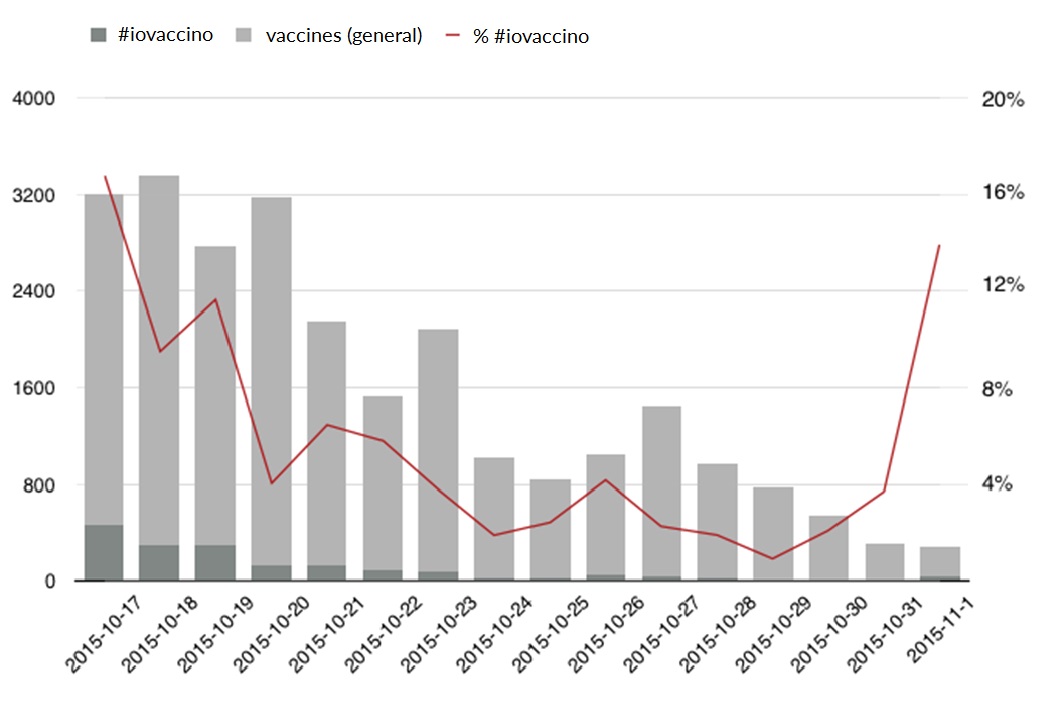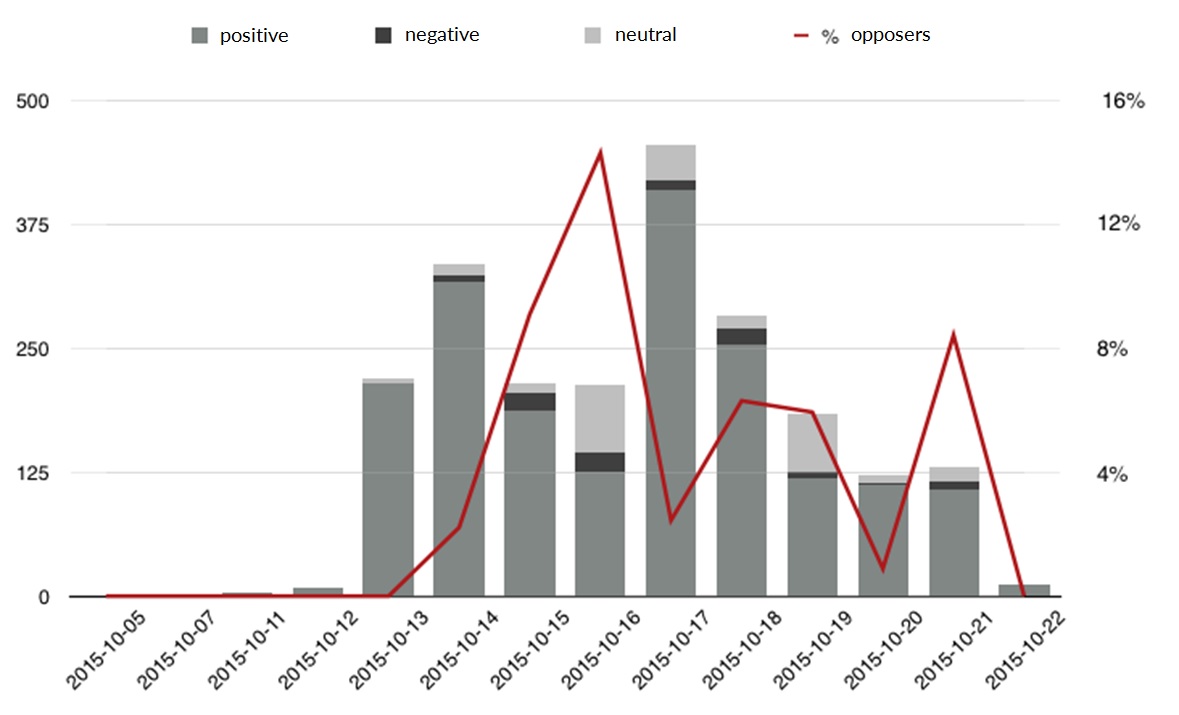Pro-vaccines campaigns on social media. An Italian case-study

This fall, the publishing, by the Italian Minister of Health, of the alarming data showing the drop in vaccine coverage in the country, revived the ardent debate between opponents and supporters of vaccinations, especially online. Adding fuel to the fire was the death of a one-month old child by whooping cough at Sant’Orsola hospital, in Bologna, even if it is still unclear if such a tragedy actually had a significant link with the decrease of vaccine coverage or was just a coincidence.
While the echo of this death faded away, the debate persisted, with requests of making vaccines mandatory being opposed by accusations of vaccines’ perilousness and business interests raised by individuals and organizations like Codacons, a big consumers’ association that claimed to be ready to a flurry of denunciations against mass vaccinations.
Such a growing concern pushed an Italian mother to start a pro-vaccination campaign online, which soon became viral. Miriam Maurantonio asked parents to take and post a selfie with the hashtag #iovaccino (“I vaccinate” in Italian) on Twitter, Facebook and Instagram, and actively advertised the national vaccine call centre, sponsored by CCM (National centre for the control and prevention of infectious diseases). She also created a Facebook group that, as of today, has 12,942 subscriptions.
ASSET experts analysed the #iovaccino campaign on Twitter, to try to quantify its impact. The initiative started to become visible on October 13th, with more than 200 tweets, rising to 460 four days later. in general, between October 17th and 23rd, vaccines were discussed in the 0.04% of the total tweets in Italy (700,000 daily), with a daily average of 2,400 tweets. Within this discussion, the #iovaccino hashtag had an impact quantifiable between 4 and 16%, with a daily average of 193.6 tweets.

Fig. 1 – Number of daily tweets.
ASSET experts analysis further explored the period between October 17th and 23rd: 8,593 people participated to the online discussion on vaccines, 1,267 of whom cited #iovaccino. Such an involvement was favoured by the participation of some highly followed accounts, including UNICEF Italia (230,035 followers) and CICAP (an Italian organization aimed to counter misinformation and pseudoscience, with 70,543 followers), both in favour of vaccines.
Sentiment analysis of #iovaccino tweets revealed a predominant positive trend (fig. 2), which took several forms: generic support, photos, recommendation of related sources, highlighting and critic of opposing claims – with a particular negative emphasis on Codacon’s position. Only 27 users of the #iovaccino hashtag expressed negative opinions. They tweeted more than those favourable to the campaign (3.14 versus 1.7 tweet per user) but had less followers (an average of 459 versus 4401). Some of their tweets mocked vaccines supporters for their alleged ingenuity, others cited different sources – including a paper published on Human & Experimental Toxicology – to counter their arguments.

Fig. 2 –Sentiment analysis of #iovaccino tweets.
The tweets with a neutral sentiment were 224, posted by 187 users. It is interesting to note, among them, the official account of one of the Italian public television channel, RaiDue, which restricted itself to report the existence of the controversy on the web, without taking any side.
Both the general discussion on vaccines and the visibility of the #iovaccino campaign quickly declined as time went by, falling to about 300 total tweets and few tens with the #iovaccino hashtag (fig. 1).
One of the direct consequences of Maurantonio’s campaign that ASSET expert’s analysis revealed is the support to the petition promoted on Change.org by another mother, Alice Pignatti, who asked the Italian minister of health, Beatrice Lorenzin, to pass a law that would make vaccines obligatory to access public school. In fact, the link to the petition was the most cited among those with the #iovaccino hashtag and a positive sentiment toward the campaign.
